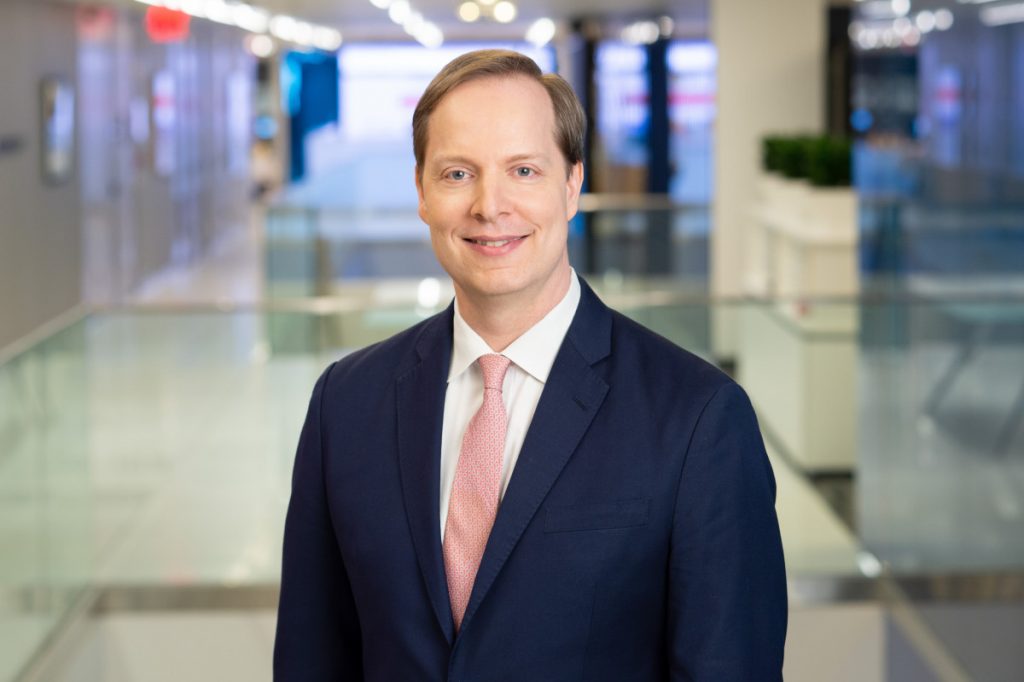
Alton Northup
Staff writer
Journalists play a more important role than ever before as public trust in the news media declines, said Almar Latour.
“I like to say this is our moment,” he said. “The more challenging and confusing the times are, the more significant the role of journalists, the more meaningful contributions they can bring to society.”
Latour, CEO of Dow Jones and publisher of The Wall Street Journal, will open the Chautauqua Lecture Series Week Four theme, “The State of Believing,” at 10:45 a.m. today in the Amphitheater. His lecture, titled “Dictators, Robots, Free Press and You,” will focus on declining public trust in the news media around the world, and what people can do to protect journalism’s role in a free society.
Latour described the American public’s attitude toward the news media as “checkered at best” in a time when so much change is happening. Developments in technology, geopolitics, economics and even what currency people use, all create a backdrop for journalists where there is not an answer for every question.
At a time with so many questions, the best thing journalists can do is continue to provide the public with reliable information, he said.
The way people get their news is also changing, as technology offers new methods of consumption. While some newsrooms may struggle, Latour is confident the media industry will adapt.
“The U.S. is built on a strong free press – it’s a cornerstone of U.S. society – and it’s an element of society worth fighting for, to be very conscious of, to be very respectful of,” he said. “The power of America in the course of history is the power to reinvent and to reinvigorate from generation to generation.”
In opening Week Four, Latour said he wants to set a realistic tone for Chautauquans underlining the responsibility to defend the free press.
He is no stranger to Chautauqua. In 1994, a 23-year-old Latour interned for The Chautauquan Daily as a religion reporter. He called the experience formative for him as a journalist and as an immigrant assimilating to American society.
“It opened up a world to me … where I wasn’t just reporting, which I had done before, but that I could report on big issues, big ideas, meet with experts and be surrounded by people who care about ideas,” he said. “This gave me a window into not just the U.S. I knew from the history books, or that I (had) gotten to know as an exchange student, but enacted how the decisions are made in society.”
Outside the United States, Latour said “there’s been a concerted effort from autocrats to fight against free press.”
On March 29, Wall Street Journal reporter Evan Gershkovich was on a reporting trip in Yekaterinburg, Russia, when authorities detained him on espionage charges. He had been covering the invasion of Ukraine and was accredited by Russia’s Foreign Ministry to work as a journalist. The U.S. government and the Journal deny the charges against him.
“This sends a signal that reporters for the free press are not welcome, and are not going to be treated fairly,” Latour said. “And that’s devastating.”
He described Gershkovich as a knowledgeable reporter with a “natural sympathy for the people of Russia” and a deep understanding of Russian society. The absence of his reporting, Latour said, is a loss for many.
“It robs, first and foremost, the Russian people of a fair and unbiased look at their own society during a time of war and crisis,” he said. “Second, it has taken away a vital instrument for the world to assess what is happening on the ground in Russia at a time of great change, most of it negative.”
Russia has granted fewer consular visits than usual, Latour said, and contact with Gershkovich has been inconsistent as he communicates from Moscow’s Lefortovo prison through Russian lawyers.
“We can conclude that he is resilient; he maintains a sense of humor; he is reading a lot, and that all gives us hope,” Latour said. “I imagine he is as strong as his reporting.”
Latour said he is hopeful Russia can return to the robust free press it once had 25 years ago. For now, the Kremlin seems set on changing the rules of the game as it goes.
“It doesn’t mean that that cannot return, but at the moment that part of society has been minimized, brutally,” he said.




